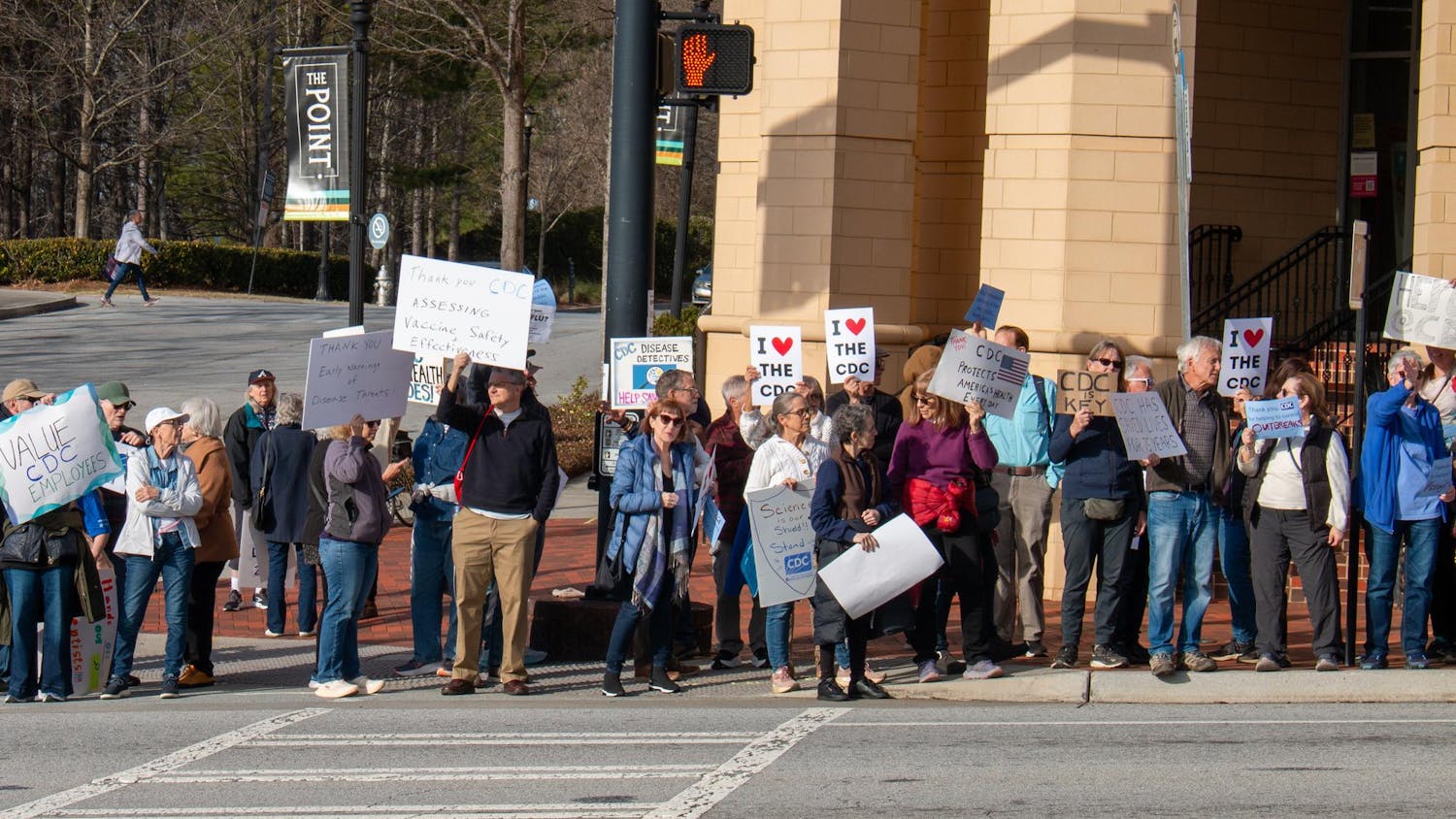Changing the world is an ambitious goal, but few act on this desire or know where to start. For Atlanta local Iris Wickham (24C) and her friend Natalia Szalay (24C), their starting point was Emory University’s Dobbs Common Table (DCT).
In 2020, Wickham and Szalay revived the dormant “Emory Food Chain” organization, which aims to reduce food waste from the DCT by redistributing excess meals to the metro Atlanta area. The Emory Food Chain — completely student led — fights against food insecurity and scarcity in Atlanta. Wickham and Szalay have specifically focused on smaller neighborhoods and cities where they believe they can have the greatest impact. Currently, they are establishing a relationship with the city of Clarkston, which has been dubbed “Ellis Island South” for its large population of refugees and immigrants. About 31% of the Clarkston community lives below the poverty line, and many face food insecurity.
“Our initiatives focus on taking food in the dining halls, packaging it and delivering it to communities in need in Atlanta,” Wickham said. “Predominantly low-income communities that face food insecurity in some capacity.”
Wickham and Szalay utilized the help of enthusiastic volunteers to collect excess meals from the DCT and deliver them. Using assembly-line like techniques, Wickham and Szalay packed leftover food from the dining hall into to-go containers, passing along deliveries to driving volunteers. The meals were then taken to the Clarkston Community Center for distribution.
Their work allows Emory community members to connect with one of the most diverse cities in the U.S., and Wickham recognizes the importance of this interaction.
“Emory can unconsciously be a bubble, so it's easy to think of Atlanta as an overall wealthy city, but it's extremely diverse in socioeconomic backgrounds and cultures and races,” Wickham said. “There are a lot of pockets of Atlanta that are very different from Emory. It's important to bridge the gap between them.”
The efforts put forward by the Food Chain reciprocate back to Emory as well, since the redistribution of excess DCT food reduces food waste on campus. By March 2021, the organization had delivered over 1,000 meals to food pantries in Atlanta and utilized 3,000 donated Dooley Dollars to supplement their meal deliveries.
The mission to engage with the greater Atlanta area also had bonus effects for Wickham and Szalay. Due to the nature of the Food Chain, the two have been able to work closely with the DCT staff, whom they are very appreciative of.
“Sometimes we think of them as just one group because we only see them at work, when really they have different passions and different backgrounds and different reasons for being here,” Wickham said.
Even the students at Emory who aren’t directly participating in the Food Chain movement are catching on to the altruistic pursuit of the organization. Isabelle Munson (24C) has valued the impact the organization has made.
“Seeing the amount of food that's available versus the amount that's eaten, it’s comforting knowing it's going somewhere where it will be eaten and appreciated,” Munson said.
During the past year, the organization has also been challenged and limited by the pandemic. Logistical questions, such as how to safely transport food from campus to donation spots, continue to arise. However, Wickham and Szalay have maneuvered through obstacles with solutions such as sterilizing cars before transportation and ensuring social distancing while distributing meals.
Wickham and Szalay have taken the remnants of an old club and successfully turned it into an agent of change. Even though the two stepped into leadership roles during a difficult semester, and their first semesters at Emory, they were both passionate about jumping at the opportunity to impact the community.
“A changemaker is someone who takes what they have and uses it in a metamorphosis to create change,” Szalay said. “They are driven, empathetic and resourceful.”
Lena Bodenhamer (24C) is from Fort Collins, Colorado.









